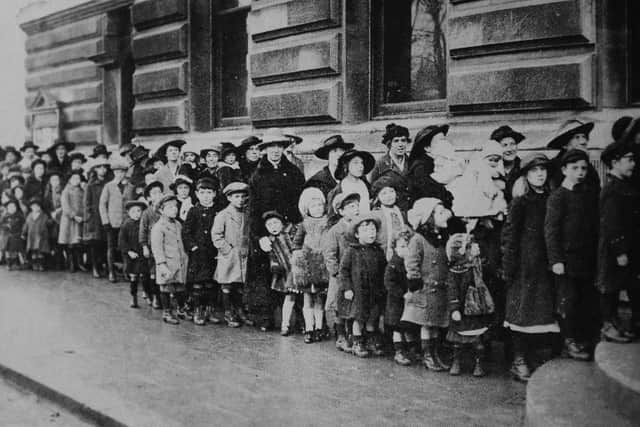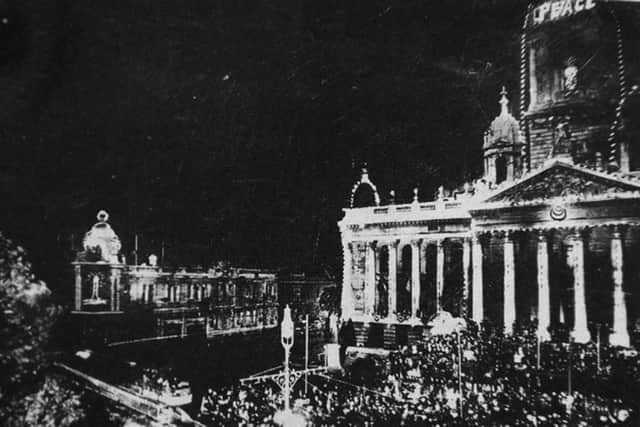Portsmouth celebrates Armistice, but agony of peace would follow '“Â Nostalgia


You get some idea of the joy that swept the nation by looking at the teeming masses gathered in Guildhall Square on the special front and back pages of The News today '“Â a picture taken on November 11, 1918, by Southsea photographer Stephen Cribb which comes from the collection of Tony Davis.
However, it could not be called the First World War as people had no idea that 21 years later the world would be cast into yet another conflict.
Advertisement
Hide AdAdvertisement
Hide AdI often wonder if we need politicians as they seem to be the people who cause wars. As I have asked before, would a baker in Portsmouth really want to kill a baker in Berlin or Tokyo? I am sure they would rather discuss different ways of baking bread.


It's perhaps a little naive of me to think this way, but I used to often visit Berlin, Verdun and Albert and all I wanted to do was talk to ordinary people in the street to find out their way of doing things. They were always responsive.Â
If the truth were to be believed, the bombing of London civilians was an accident because a German bomber pilot lost his way and instead of dropping bombs on the docklands area he dropped them on civilians. And we know how that ended, the Blitz.
Tomorrow we remember all those men, many just boys, who were lost in the horrific battles of the Marne, Ypres, Somme, Vimy Ridge, Passchendaele and Jutland, to name but a few.
How many politicians on either side died?  Correct.
Advertisement
Hide AdAdvertisement
Hide AdAnd what did it all achieve in the end? A complete stalemate with thousands of the German population dying of starvation. Some might consider it all right to say '˜they started it and we'll finish it' but is that really all there is to be said. I think not.Â
I do hope that on this special day tomorrow many of you will think about lost relatives whom we have never known who volunteered to serve their country.
I am glad to say that I am old enough to have known my grandparents who lost brothers in the war and whom I was told about when I was very young.
When their names were mentioned voices were always lowered to a whisper out of respect.
Advertisement
Hide AdAdvertisement
Hide AdI am proud to be named after one of them '“ Â my grandmother's brother Robert who was lost in a submarine during the First World War.
My second name is in memory of my father's brother William who was lost when a troop ship was torpedoed in the Atlantic in the Second World War. Of course, they have no known grave but my names keep theirs alive within the family.
'¢ My late father worked in Portsmouth Royal Dockyard, as it was called then, from 1936 until 1953 spending five years in Egypt with a dockyard workforce sent out to Alexandria and Port Said.
Their job was to repair ships that had been in action and needed repairing and rebuilding.
Advertisement
Hide AdAdvertisement
Hide AdHe often used to tell me of the many thousands of men (and many women) with whom he used to work.
It seemed strange to him that in 1981 John Nott, the defence secretary, announced the dockyard would be no more and was to be downgraded to a Fleet Maintenance and Repair Organisation. Worse than that, the workforce was to be decimated from 6,925 to just 1,200.
To put that into perspective, during the First World War there were 1,750 women alone working in the dockyard.
Of course the great days of the British Empire had long passed when we needed a navy to keep its possessions safe but even then it all appears very drastic when looking back to how things were and how the once Royal Dockyard has now become a place of heritage and a tourist attraction.